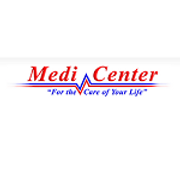
Varicose veins can be a painful and unsightly problem for those unlucky enough to suffer from them. They are noticeably different than regular veins, typically bulging, swollen, and blue or dark purple in color. Below, the MediCenter family medicine clinic in Kenai, Alaska, shares some important things to know about varicose veins, how they form, and how to effectively manage and treat them.
What to Know About Varicose Veins
What They Are
A varicose vein develops through faulty blood flow in the afflicted vein. They are most common in the legs and feet and are a surprisingly widespread issue; as many as one in five Americans suffers from varicose veins. They often do not produce any symptoms other than the telltale distended, discolored vein, but, in certain cases, they can result in aching or swollen legs or ankles.
How They Form
 Varicose veins are a sign that blood in the vein is moving in the wrong direction or pooling within. They occur because the vein's valves are not functioning properly. Though rare, an extreme case of varicose veins could cause a rupture or encourage the growth of skin ulcers, both of which would require medical intervention.
Varicose veins are a sign that blood in the vein is moving in the wrong direction or pooling within. They occur because the vein's valves are not functioning properly. Though rare, an extreme case of varicose veins could cause a rupture or encourage the growth of skin ulcers, both of which would require medical intervention.
How to Treat Them
If you've never seen one before, a varicose vein may look unpleasant and nothing more. When accompanying symptoms are present, however, they can seriously impede one's ability to get around comfortably, causing pain and swelling in the legs and feet. There are a variety of treatments available, such as surgery to remove the vein, which is typically an outpatient procedure performed under general anesthesia or with the use of a laser. Sclerotherapy is another option, in which a chemical is injected into the vein, monitored by ultrasound, and, over time, the varicose vein recedes. For larger veins, ablation can work wonders through a catheter inserted into the vein and heated through radio frequencies; the vein then collapses and heals.
The doctors at MediCenter will help you find the most effective solution for your varicose veins. With multiple locations throughout the Kenai region, they are committed to providing the highest levels of medical care in a safe and compassionate environment. Call (907) 283-9118, visit them online, or contact them via Facebook to make an appointment.
About the Business
Have a question? Ask the experts!
Send your question

